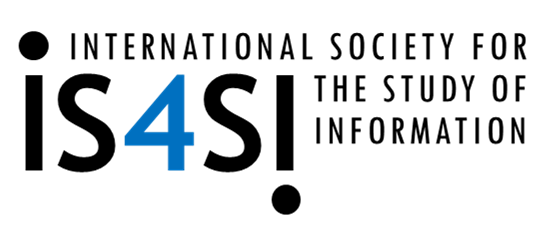International Society for the Study of Information (IS4SI)
Code of Ethics
-
Ethical Guidelines for Authors
Summit is devoted to reviewing articles on academic integrity as noted, authors submitting manuscripts should abide by the following principles during manuscript production and submission.
7.1. Author Responsibilities
- Ethical Research: It is important that the authors of original research adhere to codes of ethical practice in the conduct and reporting of the research itself, and of data, methods, findings and interpretations.
- Originality and Plagiarism: It is mandatory that authors write their assignment compositions from scratch and adequately cite sources. Such things as plagiarism are considered a taboo.
- Transparency and Disclosure: The authors are required to declare any of the conflicts of interest which may be financial, personal or professional.
- Authorship: Authorship should be restricted to people who have real application to the conducted research. All affiliations and material contribution of the co-authors should be clearly stated.
- Data Access and Retention: Reviewers should be ready to receive raw data whenever necessary and save it for a reasonable time after publication by authors.
- Ethical Compliance: Any research needs to follow critical ethical standards necessary as related with human beings, animals, environment, and data security.
- Timeliness and Responsiveness: It is important for authors to submit work early, and to engage early and professionally with the peer reviewers.
Compliance with these principles helps disseminate knowledge and aligns with the principles of IS4SI such as integrity, fairness and quality.
7.2. Specific Ethical Considerations
- Data Access and Retention: Authors should be prepared to share raw data with editors and consider making it publicly available when feasible.
- Reporting Standards: Research should be presented accurately, with data represented truthfully and in sufficient detail to allow for replication.
- Originality, Plagiarism, and Citation: Submitted work should be original, and the work of others should be properly cited or quoted.
- Multiple Submissions: The submission of the same work to multiple Summit publications or to copyrighted publications elsewhere is prohibited.
- Authorship: Authorship should be limited to those who made significant contributions. The corresponding author is responsible for ensuring that all contributing authors are included and agree to the final version for submission.
- Error Correction: Authors should promptly notify Summit of any significant errors in their published work and cooperate with corrections or retractions.
- Copyright and Licensing: Summit articles are published under a Creative Commons Attribution 4.0 International (CC BY 4.0) license, allowing for broad dissemination and reuse with proper attribution. Authors retain copyright but grant others reuse rights with proper citation.
- Accurate Presentation: Research findings should be presented honestly and objectively.
- Authorship Criteria: All individuals who meet authorship criteria should be included as authors, with their specific contributions acknowledged.
- Conflict of Interest: Potential conflicts of interest should be disclosed at the time of submission.
- Data Integrity: Detailed methodologies should be provided, and raw data should be made publicly available whenever possible.
- Simultaneous Submission: The simultaneous submission of the same manuscript to other publishers is prohibited.
- Originality: Research results should be novel and not previously published. Plagiarism or duplicate publication is not tolerated.
- Permissions: Permission should be obtained for the use of previously published content in the manuscript.
- Error Correction: Any errors or inaccuracies discovered after submission or publication should be communicated to Summit for correction or retraction.
Non-compliance with these guidelines may lead to manuscript rejection, retraction, or other consequences as outlined in Summit’s editorial policies.
IS4SI 2024

